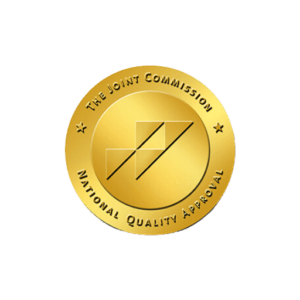Are you or a loved one wrestling with fentanyl addiction? If so, you’re probably aware of how daunting the situation can feel. However, it’s important to remember that there’s hope. A powerful first step on the journey towards recovery is often inpatient detox. But what exactly does this entail? How does it work? Let’s dive deeper into these questions.
Understanding Fentanyl
Fentanyl is a synthetic opioid that’s incredibly potent, up to 100 times more potent than morphine. Much like the powerful anesthetic ketamine, it’s used medically for severe pain management, but unfortunately, it’s also become a widely abused drug due to its intense euphoric effects. The potency of fentanyl makes it a serious health risk, leading to high rates of overdose and addiction. With such a powerful adversary, it’s crucial to approach recovery equipped with the right tools and support.
Detox – The Critical First Step
When you’re faced with overcoming fentanyl addiction, the initial step is often detoxification or ‘detox.’ Detoxification is the process of eliminating the drug from your system, which can set the stage for successful long-term recovery. However, it’s not as straightforward as it might sound.
The Challenges of Detox
Detoxing from fentanyl can be incredibly challenging. Withdrawal symptoms can start within a few hours of the last dose and can range from unpleasant to severe. These symptoms can include agitation, sweating, insomnia, and more. More severe symptoms can encompass rapid breathing and heart rate, high blood pressure, and seizures in extreme cases. This is a daunting process to face alone, and that’s where inpatient detox provides an invaluable lifeline.
Why Choose Inpatient Detox?
In an inpatient detox program, you’re never alone. Medical professionals are available around the clock to manage your symptoms, ensuring the process is as comfortable and safe as possible. Moreover, being in a dedicated facility takes you away from the potential triggers and stressors in your everyday environment, allowing you to focus solely on your recovery.
The Role of Medication in Detox
Medication can play a critical role in the detox process. Certain medications can help manage withdrawal symptoms, making them more bearable, and reduce cravings, thereby decreasing the likelihood of a relapse. However, it’s important to remember that medications are not a one-size-fits-all solution. The right medication for you depends on several factors, including your overall health, the severity of your addiction, and any other existing mental or physical health conditions.
Therapies and Treatments: Building a Foundation for Recovery
Once you’ve completed detox, the next step is usually ongoing treatment. This can take many forms, depending on your individual needs. Cognitive-behavioral therapy (CBT), for instance, helps you recognize and change patterns of thinking and behavior that lead to drug use. Group therapy, meanwhile, can provide a sense of community and shared experience, which can be invaluable in recovery.

Holistic Approaches to Recovery
In addition to standard therapies, many inpatient treatment programs also offer holistic treatments. These can include things like mindfulness meditation, yoga, and nutrition counseling. These treatments can help address the physical, mental, and emotional aspects of recovery, promoting overall well-being.
Life Skills and Vocational Training
To help you prepare for life after treatment, many programs offer life skills training and vocational counseling. These services can help you develop practical skills, explore career options, and build a stable, fulfilling life without drugs.
Aftercare: The Lifelong Journey
Even after you leave the inpatient facility, your addiction recovery journey continues. Many treatment programs offer aftercare services to support you as you navigate life post-treatment. These might include ongoing therapy, support groups, educational resources, and check-ins. The goal is to ensure you feel supported and empowered to maintain your newfound sobriety.
The Importance of a Support Network
While professional help is vital, the support of loved ones also plays a crucial role in the recovery process. Family therapy and counseling can help repair strained relationships and teach your loved ones how they can best support you. Having a robust support network can make the journey towards recovery feel less lonely and more achievable.
Making the Decision
Choosing to pursue inpatient detox is a significant decision. It’s a commitment to yourself, your health, and your future. The journey to recovery isn’t always an easy one, but it’s important to remember that you don’t have to walk it alone. Inpatient detox and subsequent treatment can provide the support, tools, and resources you need to overcome fentanyl addiction and reclaim your life.
Final Thoughts
Recovery from fentanyl addiction is a journey, and like all journeys, it starts with a single step. That first step can be challenging, but it’s also a step towards a healthier, happier future. And with the help of a comprehensive inpatient detox and treatment program, that future is well within reach.









